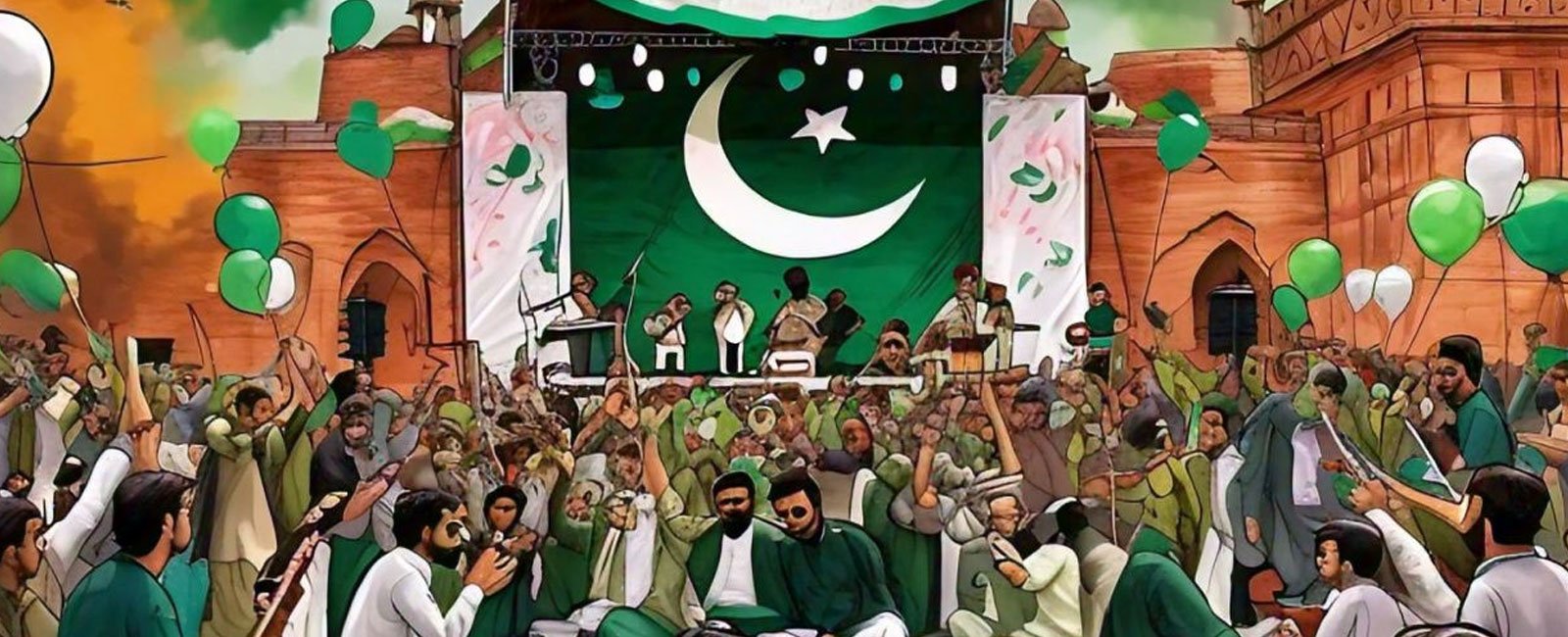77 years on, Pakistan's journey from green and white to grey
Understand that things are not permanent, and work towards collective well-being and the hope for a better future lies within us

People try to view the green and white in ‘black and white’. Of course, there’s bound to be confusion. Seventy-seven years of Pakistan. It’s almost eight decades since the country’s birth on the map of the world… a country that happens to be the fifth most populous, with a majority of its population under the age of 30.
A country that enjoys and has the potential to achieve much despite the odds. And one doesn’t have to dig through the pages of history… our joint memories are buzzing with moments the green and white was flying high at the Paris Olympics 40 years after a throw that pierced through Olympic records — a magical moment for a country whose populace needed this vibe just before marking its 78th Independence Day.
Geo.tv spoke to Pakistanis to score Pakistan’s report card.
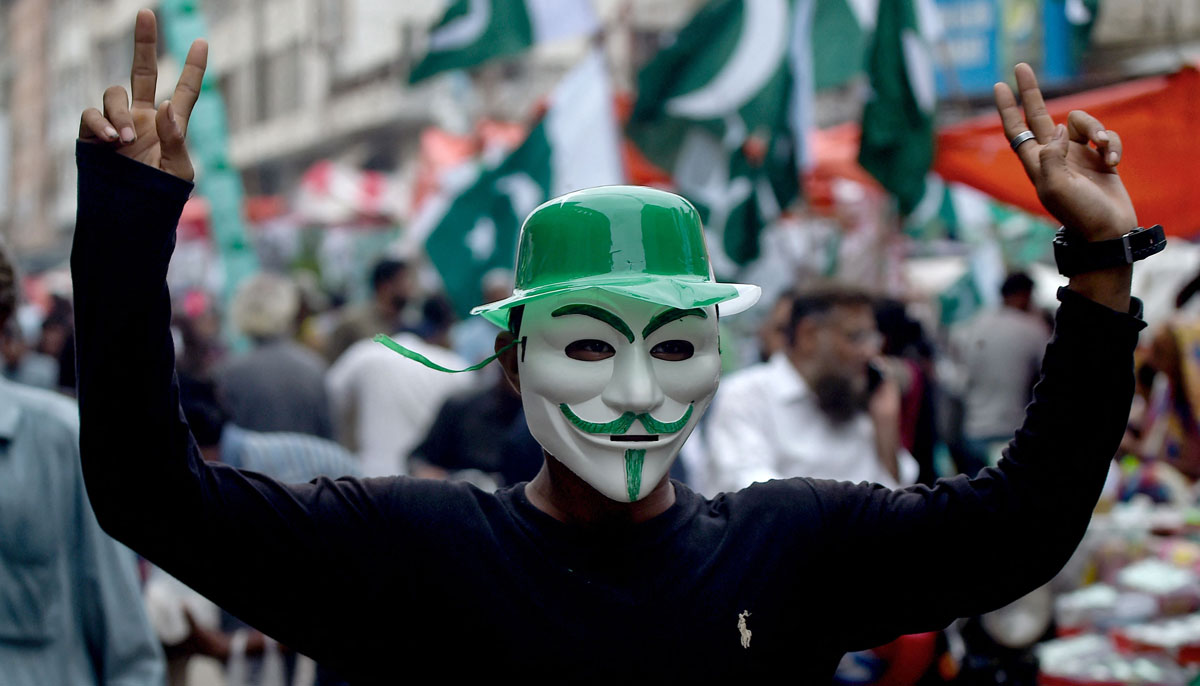
Pakistan — a misunderstood country?
“Pakistan is misunderstood. People tend to view it in black and white, in good and bad. To be honest it is a lot of grey. You do find a lot of good, and a little bit of light in all this darkness also,” says Bilal Hassan, popularly known as Mystapaki, a content creator, photojournalist, and writer who has been covering Pakistan for 10 years, and still finds it to be a complex country.
For the photojournalist, 'independence means to be free'. "But more than 77-odd years later, I’m questioning that also; are we free, or not?” Speaking about social media and if it has augmented the doom and gloom situation, Hassan mentions, “Social media has played a very crucial role in highlighting the reality, in highlighting injustices which, unfortunately, in the current situation the media can’t or is unable to highlight to its fullest."
The household name that he has become, Mystapaki’s interactions include a diverse age group. To assess what is the vibe of an average citizen, he remarks, "It's not great, to be honest. Every single person I talk to is looking for a way out of here," he shares, mentioning his barber, a middle-class Pakistani, with a stable job, who casually shared his plans of moving out of Pakistan by getting on a boat across the Mediterranean to Europe, when Hassan paid him a recent visit.
The youth may feel this moment is the gloomiest, but will the situation improve? Hassan, who writes and talks about issues, had a discussion with his colleague, about how around five years back there were issues they could talk about openly on the internet.
"Pakistanis were much accommodating, even right now while saying this I’m self-censoring; now, I feel we self-censor; we don’t talk about issues, we can’t talk about issues, and I’m not talking about politics or higher-ups that we’re threatened by, but by our people, and how they’ll twist these things; there’s a lot of doublethink, lots of doublespeak," he said, reflecting on a society that has regressed.
A disillusioned youth — a similar sentiment as compared to other periods in Pakistan’s history?
“The lack of historical consciousness is one of the great blights of our country. We’ve replaced history with ideology,” says Dr Ayesha Jalal, a Mary Richardson Professor of History, and Director, Center for South Asian and Indian Ocean Studies, at Tufts University in the United States.
When enquired about the current disillusionment among the youth in Pakistan, particularly their desire to leave the country, and how this sentiment compares to similar periods in the country’s history, Dr Jalal said, "Pakistan has faced serious moments in history, such as the crisis of 1947 and the dislocations of partition. But it was also a time of hope—there was a determination to build a new country, and a willingness to contribute for the betterment of the country.
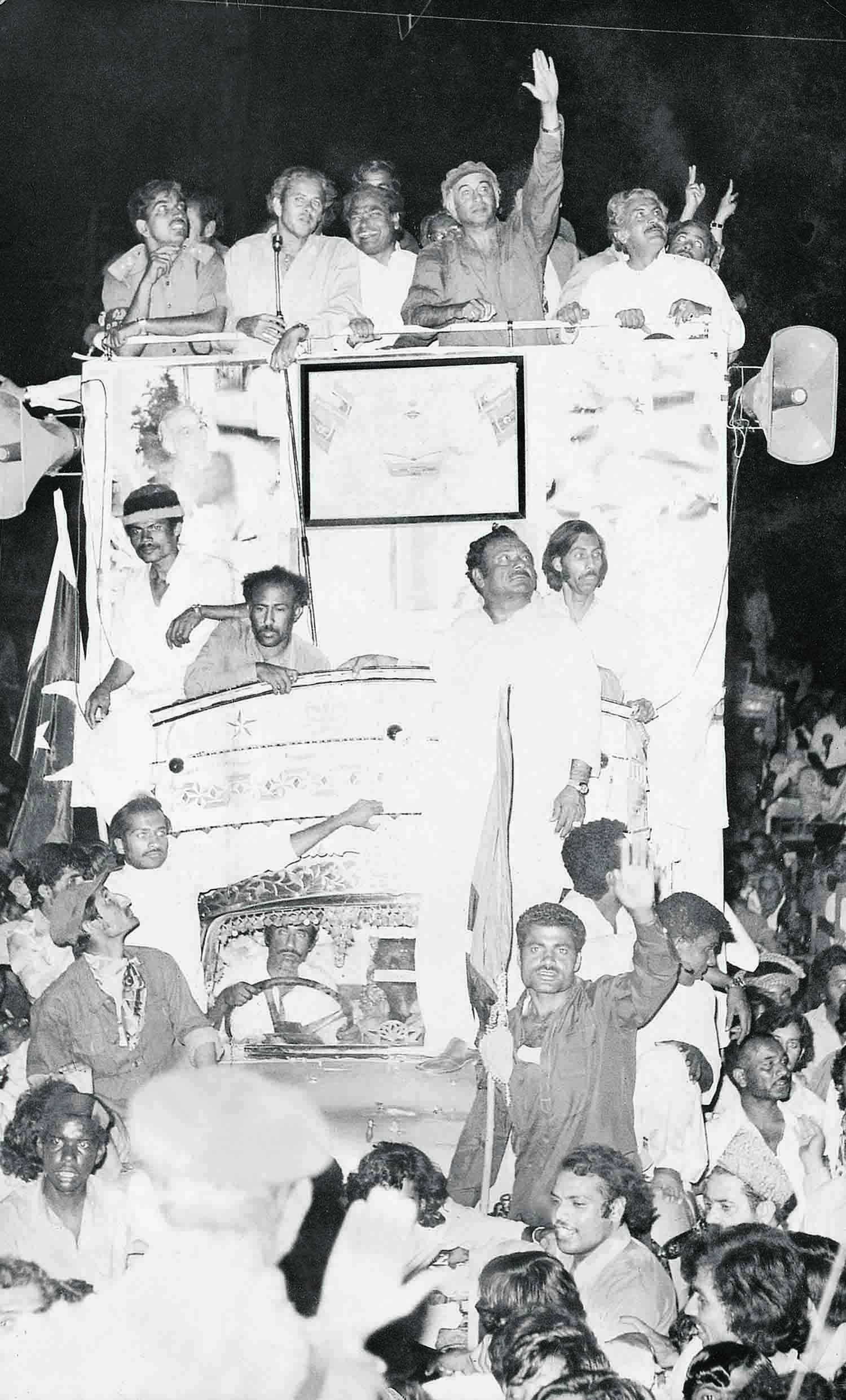
"What has changed over the years is the onset of growing disillusionment, particularly during events like 1971. Despite the disappointments and humiliation of 1971, however, there was still hope, fuelled in part by Zulfikar Ali Bhutto’s populism."
According to the Tufts professor, what’s happening nationally needs to be understood in a global context.
"The deregulation of capital and the neoliberal policies adopted by many countries, including Pakistan, since Zia’s era, have had significant impacts. The underperformance of the state in education and public health, compounded by these neoliberal ideologies, has led to the withdrawal of the state from these crucial sectors.
"Some private schools do produce a trickle of bright students, but that is not enough. What’s unique about the current situation is the combined weight of poor economic decision-making and the reluctance to implement policies to expand the tax base," shares Dr Jalal, who is a distinguished historian.
Talking about what independence means for her, Dr Jalal points out that political independence is more formal than substantive.
"Pakistan’s independence has always been compromised, whether due to the circumstances of its creation or the policy decisions that followed. True independence means not being dictated to by other countries and having the wherewithal to make our own decisions. Unfortunately, Pakistan has always been a rentier state, reliant on external support," she stated, chalking out the problem which is at the state level, a postcolonial state that has not adjusted or changed according to the needs of the society.
The youth and their voice
The power of one’s voice matters. Inbisat Khalique, a social sciences student at the Institute of Business Administration (IBA) Karachi, wants the youth of the country to understand that their voice matters, despite the challenges, frustrations, and hopelessness.
"Though you may feel hopeless about your future in this country, remember that your voice can still make a difference. Observe and understand the student protests in Bangladesh and take inspiration from the power that this incident holds.”
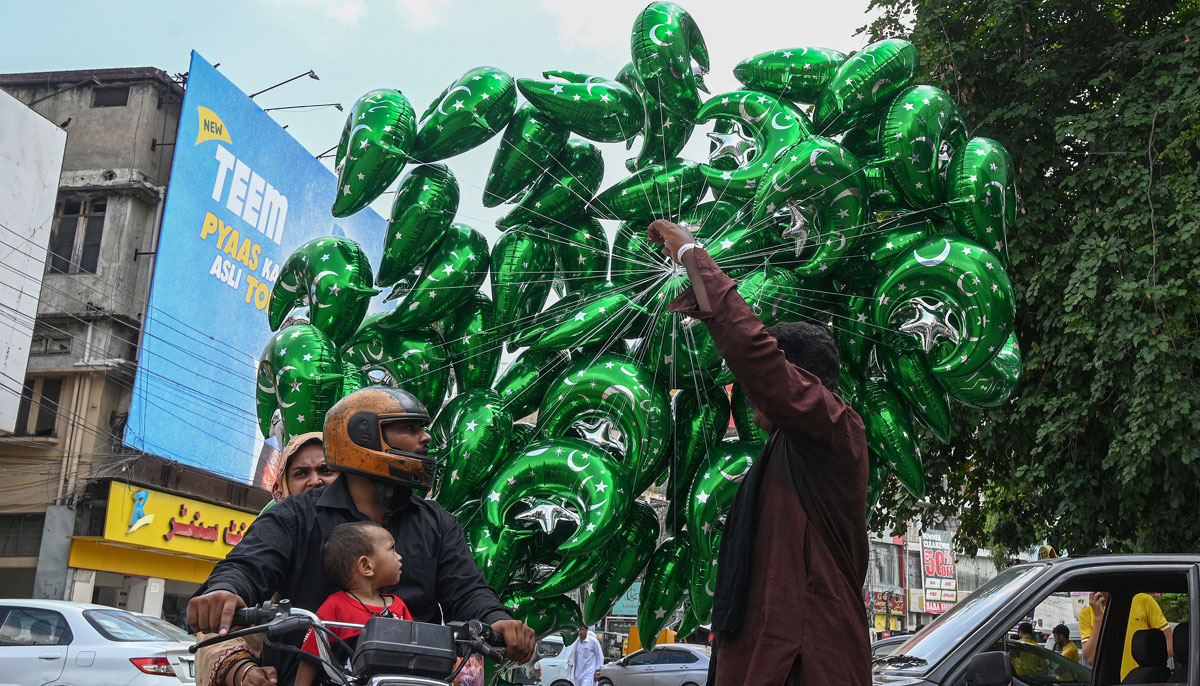
Khalique, an undergraduate student, is pessimistic about the country’s prospects for improvement, but she believes that change is possible if a leader who is genuinely honest, truthful, and committed to the well-being of citizens and students comes into power. Only then can we hope for a brighter future."
Growing up, witnessing struggles in her family and community, and lack of access to basic necessities like quality education, healthcare, and infrastructure, compounds Khalique’s bleakness about thriving in Pakistan. "You might think what do these things have to do with being hopeless, but when you’re going to see the same problems for generations, hopeful isn’t what you’re going to be about a better future. You just imagine the same future for yourself."
But in the land of the privileged, where prosperity is mostly reserved for a few, Khalique comments, "I acknowledge that I'm privileged to have opportunities that will likely allow me to earn a living and support my basic needs — a luxury not everyone in this country can afford. This realisation comes from a place of recognition of my privilege, which has been present since the beginning."
No place like home
"Pakistan is home. Despite its flaws and shortcomings, this is where I belong. No matter how difficult things get, I can’t imagine leaving for another country," says Mariam Hameedi, a communications specialist in the development sector.
An optimist, Hameedi, feels the populace’s ‘unwavering commitment to staying the course is what keeps us going’. "Call me an optimist, but we are a nation that knows how to be resilient and remain unfazed by the challenges we face."
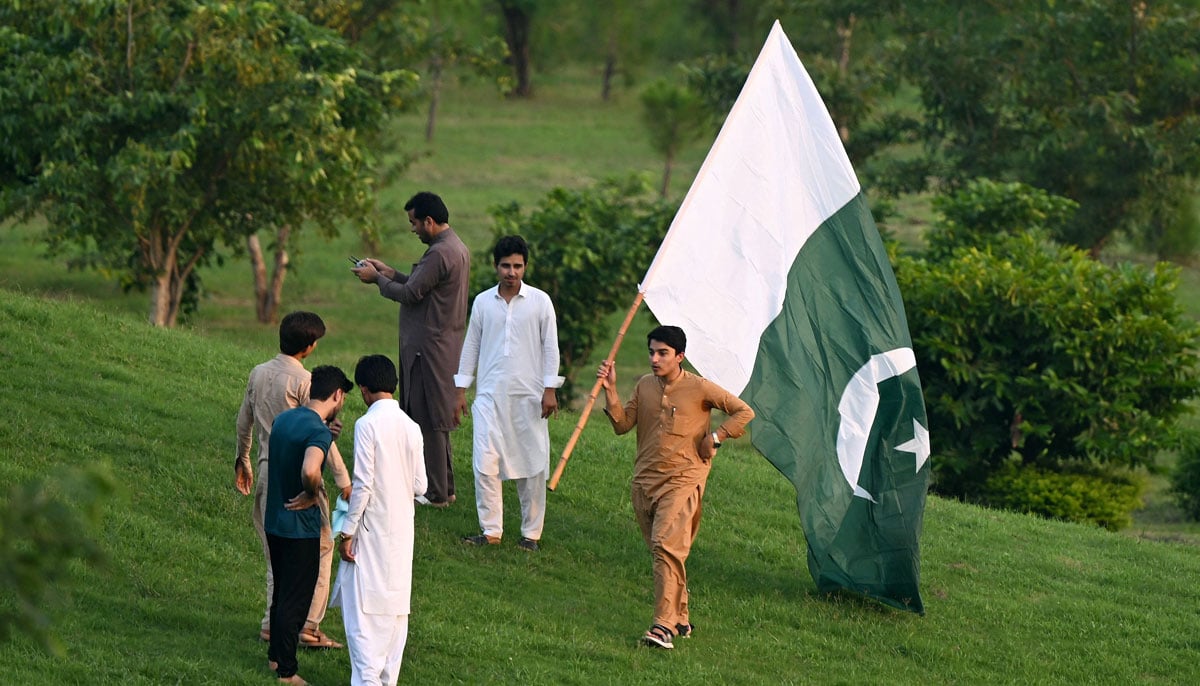
What about those who keep complaining about hardships in Pakistan, and are all praises for the green pastures in foreign lands? “Wake up and smell the coffee. If you want to see a difference, be the change yourself. Foreign lands might seem alluring, but remember, everything that glitters is not gold,” shares the communications specialist. "This is your land. Take inspiration from other countries. Start small, but take action in ways you believe can make a difference."
For those feeling the gloomiest, Hameedi has a message for you: "This is a challenging time worldwide—why single out our country? I've seen better days, and I hope for improvement. It may not happen overnight, but things will get better. Despite the challenges, I’m committed to my future in Pakistan. I've seen the country thrive before and believe that, with time and effort, things will improve. I’m inspired by examples of unity and progress from around the world and am determined to contribute to positive change here."
Foreign lands — greener pastures?
In his 15 years of working in the development sector, healthcare, and education, Stanislaus Francis*, associated with a leading mental health institution in Pakistan, shares that his work has brought him much joy over the years, with a good mix of highs and lows.
But there is always a time when one must take a step back and re-evaluate their career trajectory. With the current economic situation, Francis feels that his talents and skills are better suited outside of Pakistan, with the job market more forgiving for salaried individuals abroad.
"Moving abroad for a better future is a no-brainer. With inflation spiralling out of control here, my chances of enjoying a stable and relaxed future look weak. High taxes, lack of basic amenities, and reduced spending power have affected my mental health, as well as my family’s. As a salaried individual, working as hard as ever to provide a safe, healthy, and stable tomorrow for the family is presently bordering on impossible.
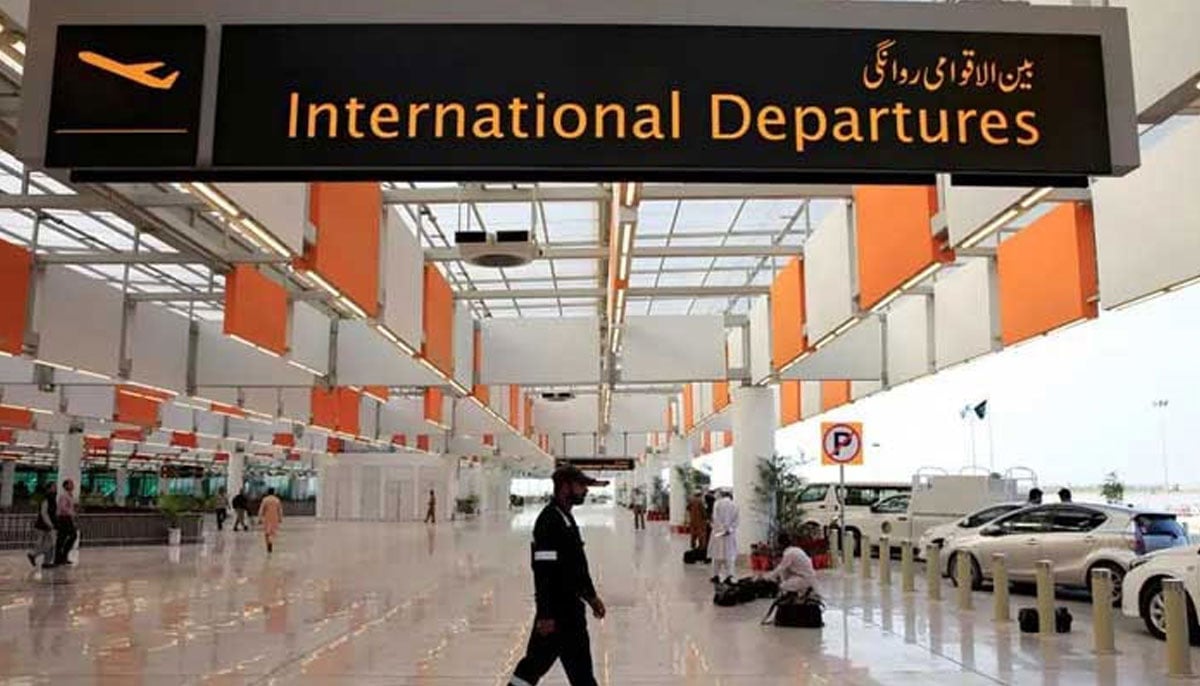
"With little to no retirement benefits from the government, I do not wish to slog for 50+ years and enjoy nothing during retirement here. Leaving Pakistan gives me the best chance to enjoy my life, build a future for my family, and enjoy the benefits of retirement," shares Francis.
But the youth can stay motivated, and no, not by money alone, as Francis highlights.
"If there is one thing that Pakistan should be proud of, it’s the fact that it has a huge population of young adults who are hungry to prove themselves. Give them a platform that will encourage them to showcase their skills and it will prove to be a catalyst for keeping their motivation alive."
Nothing like your own country
For the disillusioned and those contemplating leaving their homeland, Dr Jalal lifts the veil on the fantasised green pastures. "There's nothing like your own country. If you think life abroad will be easy, you’re deluded. Living abroad means hard work. Unfortunately, I don’t think Pakistanis are hardworking enough, at least at the skilled level. We need to change this societal ethos. Success requires hard work and dedication, and this is something our society needs to embrace.”
And the historian wants the youth to read and learn from history. “Understand that things are not permanent, and work towards collective well-being. The hope for a better future lies within us.”
*Name has been changed to protect identity
Mariam Khan is a freelance journalist and a UN volunteer. She posts on X @mariaamkahn
— Header and thumbnail image created via Meta AI



